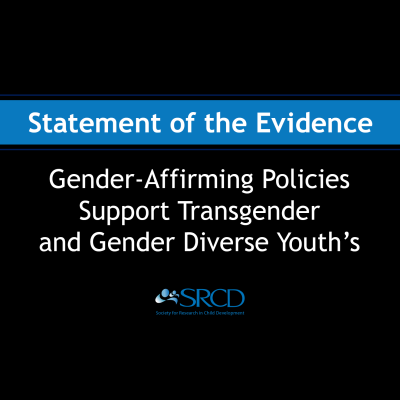Strengthening the Early Childhood Care and Education Workforce Would Benefit Young Children
Social Policy Report Brief, Volume 26, Issue 1
Why Does This Matter?
More than 2 million people play a central role in most young children’s development by providing early care and education in preschool, child care, Head Start, and other settings. For many children, the role of these individuals is second only to that of a family in building the foundation for good health, intellectual development, and social skills. Yet many individuals who care for young children face inadequate training, compensation, and institutional supports.
Early care and education providers are critical for young children’s development. An effective early care and education workforce requires more financial support, greater cross-sector coordination, and further access to professional development on evidence-based practices.
Policy Implications
To strengthen the early childhood care and education workforce and improve its effectiveness, policymakers could:
- Promote clear definitions of this workforce, especially through use of consistent occupational categories across federal agencies, and more useful workforce information through improved and integrated federal and state data systems;
- Raise subsidy reimbursement rates to market levels as a step toward allowing providers to receive higher wages, obtain more training, and/or purchase health insurance assistance; and
- Set minimum standards for staff qualifications and program features such as licensing, certification, training, background checks, and regular inspections in settings receiving subsidies.
Policymakers and nongovernmental organizations—including professional organizations—could also:
- Improve professional development at all levels to ensure that members of this workforce learn about the developmental needs of very young children; obtain necessary knowledge and skills, including use of effective and evidence-based practices; and receive the tools to provide early learning experiences that are emotionally supportive and intellectually stimulating;
- Provide more opportunities for advancement and recognition within a well-defined career ladder; and
- Build public understanding of the importance of early childhood and the need for effective programs.
What the Research Says
- The quality of children’s early experiences matters for long-term intellectual development, socioemotional well-being, and health.
- High-quality experiences are especially important for children from low-income backgrounds, who fall behind their more affluent peers in cognitive and language development and social skills as early as age 2, and who get the most out of high-quality programs, but have the least access to them.
- High-quality early childhood care and education includes close teacher-child relationships, frequent sensitive and language-rich interactions between the child and the adult, well-designed instruction, respectful and effective behavior management, and a safe and interesting environment.
- Studies indicate a gap between evidence-based practices that encourage sensitive and stimulating interactions with children and the daily practices of many caregivers and teachers.
- Many individuals in early childhood care and education have low wages, few benefits, and limited opportunities for advancement, leading to turnover and job dissatisfaction, which in turn have been linked with stress, burnout, and lowered interest in professional development.
Facts at a Glance
- Current early childhood care and education programs in the United States emerged from two different policy streams: early childhood education (facilitating child development) and child care (supporting parental employment).
- The early childhood care and education workforce includes 1.8 to 2.2 million people—about a third of the total U.S. teaching workforce at all age levels.
- About half of them work in center-based settings, a fourth are paid relatives, and a fourth are nonrelatives in family child care settings or children’s homes.
- Average annual salaries are approximately $31,000 for preschool and kindergarten teachers, $21,000 for assistant teachers, $18,000 for other child care workers, and $14,000 for family child care providers.
- Early childhood care and education settings range from carefully planned and executed programs to those that are subject to no requirements. Programs vary by purpose, hours, settings, and funding, and are subject to varying degrees of regulation and oversight.
This brief summarizes a longer Social Policy Report, "Building the Workforce Our Youngest Children Deserve," by Holly Rhodes, Program Officer, Board on Children, Youth, and Families, National Academies, and Aletha Huston, Pricilla Pond Flawn Regents Professor of Child Development Emerita, University of Texas at Austin. The report builds on a March 2011 workshop convened by the Institute of Medicine and the National Research Council Board on Children, Youth, and Families entitled “The Early Childhood Care and Education Workforce.”


